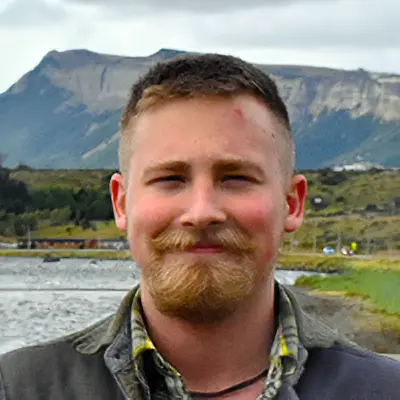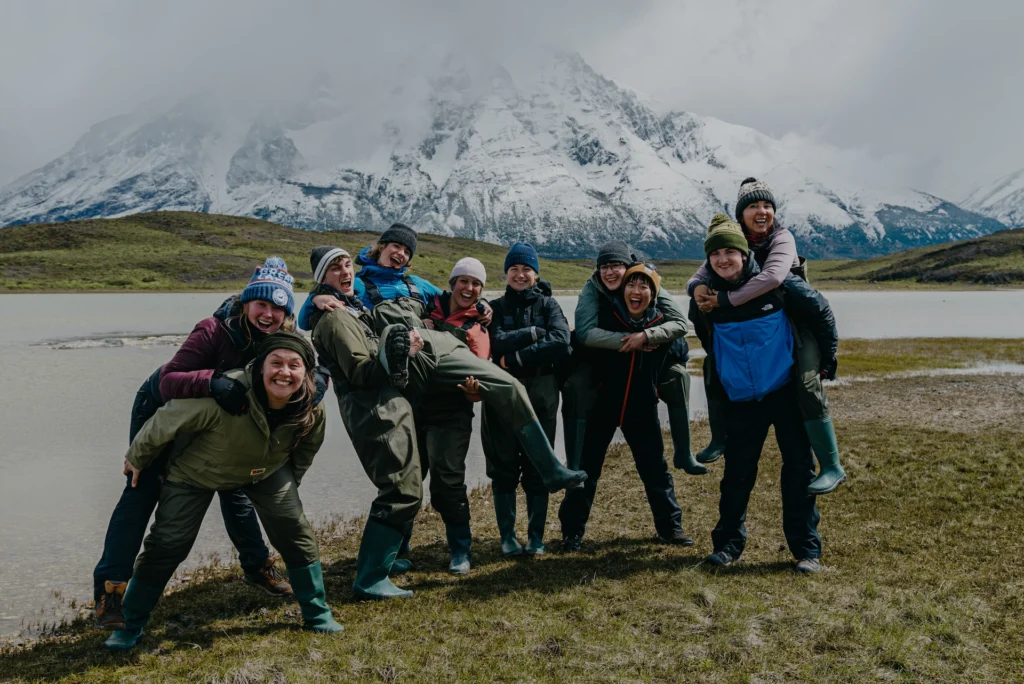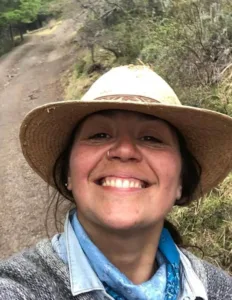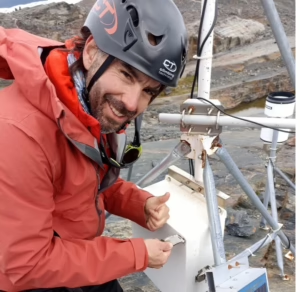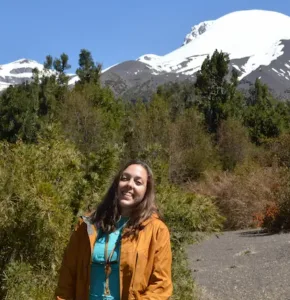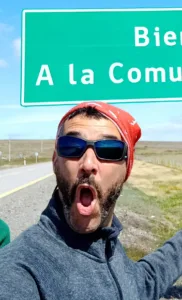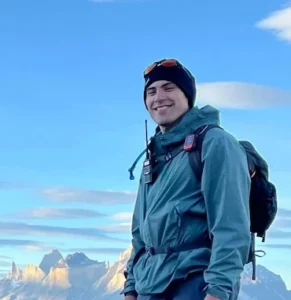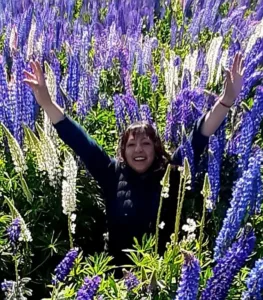Chile
Study Abroad in Chile
Have you ever wanted to hike among the mountains and glaciers of Patagonia, see penguin colonies up close, or explore stunning labyrinthine fjords?
Whether you’re an experienced traveler or looking for your first trip to another country, studying abroad is an important component of your college career. Living abroad gives you the opportunity to explore new places and learn about different cultures, gaining important global perspectives, discovering new things about yourself, and building lifelong friendships.
Our programs in Chile take place across the contrasting landscapes of Patagonia, from jagged peaks, massive glaciers, and narrow fjords to expansive grasslands and the lush temperate rainforests growing at the base of the Andes. Courses and fieldwork focus on key environmental issues faced here such as climate change, biodiversity conservation, tourism impacts, and sustainable livelihoods. The fragile ecosystems of southern Chile and Argentina are especially vulnerable to the impacts of climate change – unpredictable storms, glacial melt, shifting temperatures, fires, and droughts. Our research in Patagonia examines ecology and geologic systems, how conservation decisions are made in the region, and species found nowhere else on the planet.
Programs
Wild Patagonia: Fire and Ice
See Program Costs
Program Costs
- Tuition
- Room & Board
- Total
The Patagonian Winter
See Program Costs
Program Costs
- Tuition
- Room & Board
- Total
Where You'll be Living
Surrounded by the jagged peaks of Cerro Dorotea and the deep blue waters of the Señoret Channel lies the port city of Puerto Natales, the gateway to the world-famous Torres del Paine National Park. Located in the heart of this tourist hub is the SFS Center for Climate Studies, your home base for expeditions throughout the region.
- Up to 6-person, dorm-style rooms with shared bathrooms
- Classroom and student lounge
- Kitchen and dining room, and on-site cooking staff
- Just a few blocks from the town square, shops, and cafes of Puerto Natales
- Short walk to the Señoret Channel, a scenic fjord with views of the Andes
Know before you go
Click on each dropdown to explore details about life at this Center, and determine if it’s the right fit for you.
Program experience
Living Conditions & Daily Life
Students follow a structured schedule with classes and field activities typically running from 8 AM to 7 PM on weekdays and some Saturdays. Accommodation is in shared dormitories with communal dining facilities, where meals are provided.
A daily curfew is enforced throughout the program, except during the mid-semester break and select weekends for independent travel. Independent exploration beyond Puerto Natales is limited to the mid-semester break, when the SFS Center is closed and students are required to travel independently.
Due to the program’s intensity and frequent travel, free weekends are limited.
Physical Readiness
This program includes physically demanding activities such as trekking and camping in mountainous, uneven terrain, often while carrying personal gear (20–30 lbs). Students can expect 6–7 hours of fieldwork per day in challenging conditions that may include wind, rain, sleet, snow, and cold temperatures.
Accessibility for students with mobility impairments is very limited. All participants should arrive with a strong fitness baseline—the ability to run a mile in under 12 minutes and comfortably hike 4–5 miles in under two hours is recommended.
June temperatures (winter in the Southern Hemisphere) range from the high 20s to low 40s°F. Be prepared for snow and colder conditions throughout the program.
Travel & Transitions
Students are based in Puerto Natales, a remote town in Patagonia, but frequently travel to field sites throughout the region. This includes weekly day or overnight trips, as well as multi-day camping excursions.
Travel involves long car rides and brief stays in basic camping conditions, often without Wi-Fi, heating, plumbing, or other amenities. During the semester, students also travel briefly into Argentina near the Chilean border.
Flexibility and adaptability are essential.
Location & Culture
Program Location & Natural Environment
Puerto Natales is a small, quaint tourist hub that sees fluctuating activity between the high season (October–March) and low season (April–September). The surrounding Patagonian landscape is dramatic and dynamic, with rapid weather shifts.
Despite its remote setting, students often adjust quickly—finding favorite cafés, walking routes, and scenic views.
Cultural & Linguistic Differences
Chilean culture is rich with regional customs and distinct dialects of Spanish. While all SFS classes are taught in English and no language proficiency is required, prior Spanish knowledge enhances interactions, especially in local and rural settings.
Language instruction is provided to support students in daily communication. English is spoken in some tourist areas, but fluency is inconsistent across the region.
health
Allergies & Dietary Preferences
Puerto Natales offers a variety of dining options, but local cuisine often includes meat, starches, and vegetables. Students may prepare some meals in the shared kitchen and occasionally dine in town. When traveling away from the SFS center, meal options may be more limited.
Gluten-free and dairy-free options may be limited, and cross-contamination is possible. Cross-contamination accommodations for advanced allergies abroad may not be feasible. Students with severe or life-threatening allergies and/or strict dietary requirements must consult with medical professionals and [email protected] before applying.
Required Vaccinations & Health Care
SFS does not require any specific vaccinations for this program. For additional recommendations, consultation with a travel medicine professional is strongly advised before departure.
Medical care in this remote region may be delayed up to 24 hours. Two basic clinics and a hospital are located 10 minutes away in Puerto Natales, but advanced care, including psychiatric services, requires a 3-hour drive to Punta Arenas.
Routine in-person medical and counseling services are not feasible during the program. Students must bring a full supply of any prescription medications, including psychotropic medications, for the entire duration of the program, as local refills may not be available without prior arrangements.
PRogram Costs
Study abroad is an investment in yourself – you’ll return home with new experiences, skills, knowledge, and friendships that will stay with you for the rest of your life. SFS program costs cover a variety of expenses, including:
- Pre-program advising and on-site orientation
- Tuition and research fees
- Housing at the field station and on excursions
- Daily meals and snacks
- Airport transfers (for arrival/departure)
- Field excursions and cultural activities
- Student success and wellness team on site
- 24/7 mental health and well-being support
- Emergency evacuation and repatriation insurance
- Official transcript processing
Financial Aid
We know cost can be one of the biggest barriers to studying abroad. At SFS, we’re committed to making our programs accessible to students which is why we award a generous amount in need-based financial aid each year. Our Admissions Team has worked with thousands of students and are here to answer your questions about the SFS aid process, aid available through your home school, and funding from external sources.
SFS Financial Aid: Need-based aid packages typically consist of a combination of scholarships, grants, and zero- and low-interest loans. SFS matches Federal Pell Grant funding for students applying to an SFS semester program.
Home School Aid: Be sure to ask your home school study abroad office or financial aid office what financial aid resources might be available to support your study abroad experience.
External Funding Opportunities: Organizations such as the Fund for Education Abroad or the Gilman International Scholarship Program award scholarships to students going abroad. These can be a great opportunity to reduce the cost of your program even more.
Research
The research agenda at the SFS Center for Climate Studies mirrors the goals of the Chilean government’s 2017 national plan on climate change. This plan identifies four themes for action: adaptation, mitigation, means of implementation, and climate change management on the regional and communal levels. Students work with community members, NGOs, and local landholders to measure and observe vulnerable ecosystems as Patagonian climatic conditions continue to change.
Our research focuses primarily on the following themes:
- Climate change impacts and resilience
- Conservation policy
- Glacial and freshwater dynamics
- Aquaculture and aquatic ecology
- Alpine and post-glacial ecology
- Protected areas management
Community
SFS is a newer member of the Puerto Natales community, where we have been based since Fall 2018.
We are in the process of establishing our program and building relationships with the community. In the past few semesters, students have participated in volunteer projects, assisted in local conservation initiatives, and played sports in town.
At the end of each semester program, we host a Community Research Night where select students will present their research findings to the community. SFS research data is shared with the community, local NGOs, and the Chilean government.
